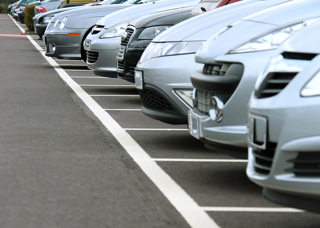Ninety-six percent of motorists could be at risk of having their car stolen by criminals using a relay attack.
A relay attack is a new method used by car thieves, which involves two criminals working together using electronic signal relay devices. One receives the car key signal from inside the victim’s home, transferring that signal to the second box, which is placed next to the car. The car’s system is tricked into thinking the key is there, allowing thieves to unlock the vehicle and drive away within minutes.
In 2016, 66% of Tracker’s stolen vehicle recovery customer thefts’ were committed by way of a relay attack, confirming just how prevalent this crime has become.
A quarter of those surveyed by Tracker said they leave their car keys somewhere in the hallway overnight. This is the most common room in the house for thieves to target to intercept an electronic car key’s signal, and it’s where the signal is likely to be strongest because of its proximity to the vehicle itself.
“We’re seeing more and more of these relay attacks taking place across the country,” said Andy Barrs, head of police liaison at Tracker. “It’s clear from our survey that many people are unintentionally leaving themselves vulnerable to these kinds of attack, by putting their keys in easy reach of relay devices.
“The good news is there are simple precautions people can take. Whilst the relay devices can receive signals through walls, doors and windows, metal is its enemy, so putting keys in a metal tin or the microwave is a cost effective way to thwart the criminals. Alternatively, invest in a metallised signal blocking pouch, such as a Faraday wallet, which is designed to shield electronic keys from relay attacks.
“It’s also worth remembering that vehicle security should be multi-layered and shouldn’t just rely on the keyless security system. Physical barriers, such as crook locks and wheel clamps will deter thieves. And whilst investing in a tracking device won’t stop a car being stolen, it can significantly increase the chances of police locating it and returning it to the rightful owner. This, plus added vigilance, dramatically contributes to keeping thieves at bay.”
Survey results:
Where do you typically leave your car keys at night?
|
In the hallway – either on a table or in a bag or coat pocket |
25% |
|
A dedicated key pot or key hook elsewhere in the house |
25% |
|
In a draw downstairs |
16% |
|
In my bedroom |
12% |
|
A combination of the above |
10% |
|
Somewhere in the house – I usually have to hunt for them in the morning |
8% |
|
A metal container to ensure it is protected from a relay attack |
4% |
Top tips on how to avoid vehicle theft
- Check it’s locked. Always double check that your car is physically secure and alarmed, when using keyless locking systems. Wait to see the flashing hazard lights confirm it’s locked. Thieves frequently lie in wait and block locking signals as owners walk away from their cars.
- Keep keys out of sight. Leaving keys in the hallway or on the kitchen worktop means thieves can break in and swipe them quickly, before driving off in your car. Put them in a drawer or out of sight in a bag, at least.
- Block electronic key fob signals. A faraday wallet is designed to shield electronic car keys from relay attacks – a new theft technique that involves extending a key fob’s signal by relaying it from one device to another. But you could also put them in a metal tin or microwave overnight to protect them from a relay attack.
- Add layers of security. Physical barriers can be effective in deterring thieves. Consider adding a crook lock or wheel clamp to your car. Alternatively, a driveway parking post or just locked gates can stop thieves in their tracks.
- Install a ‘ghost immobiliser’. For another layer of protection, add a secondary barrier to your car’s factory fitted immobiliser by having a unique access code to start your car.
- Invest in a tracking device. A tracking device won’t stop your vehicle being stolen, but it significantly increases chances of police recovering and returning it, if thieves do take it.



















Login to comment
Comments
No comments have been made yet.